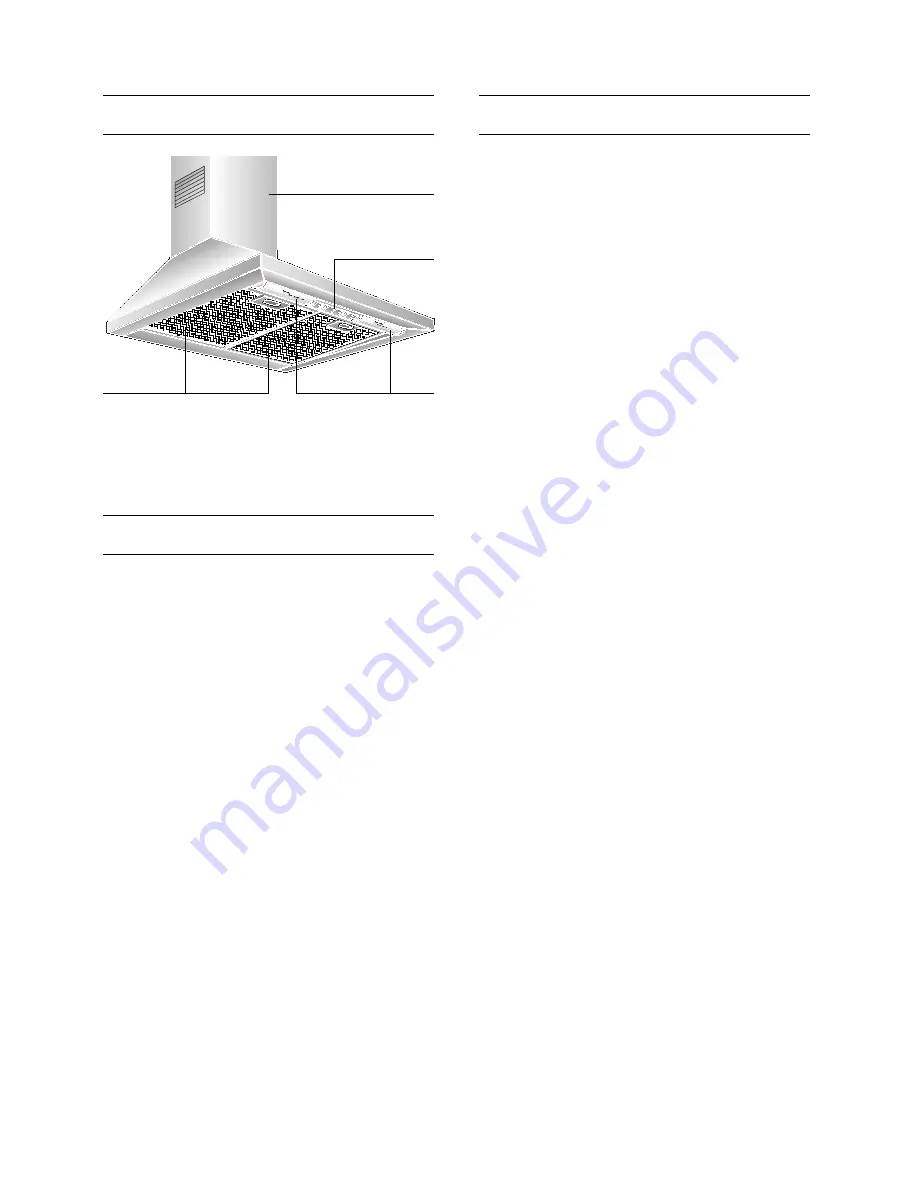
3
Appliance description
Operating Instructions
Operating modes
Operating modes
Exhaust-air mode:
❑
The ventilator fan draws the vapours
produced during cooking into the
extractor hood, where they pass through
the grease filter and out into the open air.
❑
The grease filter absorbs the grease
contained in the vapours produced
during cooking.
❑
The kitchen is kept almost totally free
from grease and odours.
D
When the extractor hood is operated
in exhaust-air mode simultaneously with
a different burner which also makes use
of the same chimney
(such as gas, oil or
coal-fired heaters, continuous-flow heaters,
hot-water boilers) care must be taken to
ensure that there is an adequate supply
of fresh air
which will be needed by the
burner for combustion.
Safe operation is possible provided that the
underpressure in the room where the
burner is installed does not exceed 4 Pa
(0.04 mbar).
This can be achieved if combustion air can
flow through non-lockable openings, e.g. in
doors, windows and via the air-
intake/exhaust-air wall box or by other
technical measures, such as reciprocal
interlocking, etc.
If the air intake is inadequate, there is a
risk of poisoning from combustion gases
which are drawn back into the room.
An air-intake/exhaust-air wall box by itself is
no guarantee that the limiting value will not
be exceeded.
Note: When assessing the overall
requirement, the combined ventilation
system for the entire household must be
taken into consideration. This rule does not
apply to the use of cooking appliances,
such as hobs and ovens.
Unrestricted operation is possible if the
extractor hood is used in recirculating mode
– with activated carbon filter.
Recirculating-air mode:
❑
To operate in this mode, it is necessary to
install an activated carbon filter (see Filters
and maintenance). The activated carbon
filter is an optional accessory that can be
obtained
from specialist retailers.
❑
The ventilator fan draws the vapours
produced during cooking into the
extractor hood, where they pass through
the grease filter and the activated carbon
filter before the clean air is discharged
back into the kitchen.
❑
The grease filter absorbs the grease
contained in the vapours produced
during cooking.
❑
The activated carbon filter absorbs any
odorous substances.
Lighting
Light / fan
switches
Filter grille
Chimney
panelling


































